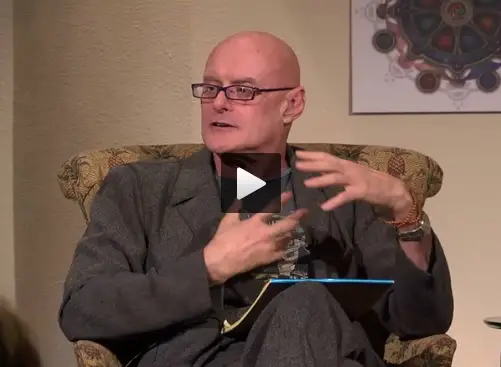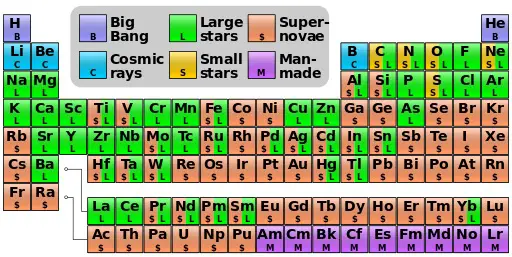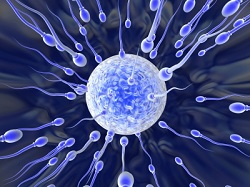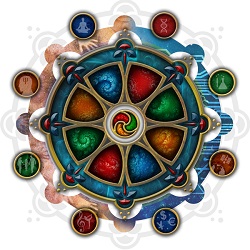TRANSLATE THIS ARTICLE
Integral World: Exploring Theories of Everything
An independent forum for a critical discussion of the integral philosophy of Ken Wilber
SEE MORE ESSAYS WRITTEN BY FRANK VISSER
Entropy and Evolution
Ken Wilber's arguments for "an infinitely
powerful force" behind evolution debunked
Frank Visser
“TAKING EVOLUTION INTO ACCOUNT”

“This seems to be the general overall thrust of evolution—and one of the things that is certain about it, is that it won't give up. It simply is there, with an extraordinary power, in the entire cosmos.”
“The entire Spirit, an infinitely powerful Force, ‘Eros in action’ is covering all of these areas.”
—Ken Wilber
Integral Life will release a couple of videos from the recent Fourth Turning conference, which was held in April 2014 at the Boulder Integral Center. Video #4 was offered recently to Integral Life members and is called "Taking Evolution into Account". There will be 14 videos in total. In this video, Wilber clarifies his current take on evolution—cultural, individual, biological and cosmic. I will offer my reflections on this video below.
As to the socio-cultural domain, Wilber contrasts the traditional understanding that we have to live in accordance with an unchanging Spirit, with his own more dynamic understanding of spiritual evolution. The phenomena of time are not a meaningless reshuffling of eternal Ideas, but a dynamic and historical realization of Spirit's potentials. It is in the history of the cosmos and of life on earth, and a fortiori in the cultural history of humanity, that Spirit finds its fullest expression, Wilber argues. He also argues for an evolutionary approach to religion in general, and Buddhism in particular, in that even these spiritual traditions evolve. His "fourth turning" is an attempt to modernize Buddhism, so it will include the advances of psychology (shadow work, stages of development), which are lacking from the traditions.
Where traditional societies resisted change, sometimes for millennia, as in the case of China, our modern Western culture has embraced changed, and even welcomes it. Wilber sees cultural world history as the result of an increasingly more inclusive mode of consciousness. In this respect he's a neo-Hegelian philosopher. And even if we all have to start "at square one" as a child, our postmodern and future integral culture increasingly accepts cultural differences, instead of seeing one's own culture as the only viable one. An integral stance sees every cultural stage or expression as appropriate and understands these from within as stage-specific and true.
When Wilber uses the concept of "evolution" he often uses it as a synonym to development—be it social-cultural or individual. These speculations are often interesting and intuitive, when applied to world problems. However, when he develops his core argument for evolution, he uses examples from the biological and cosmological domain. However, the connection between these socio-cultural and bio-cosmological domains is not immediately obvious. When the cosmic dimension is added to the table, the concept of "evolution" becomes so stretched, generic and abstract, that much of its precise meaning is lost.
What is more, it is in the biological domain that Wilber seeks to build his case that there's "an infinitely powerful Force" behind all aspects of evolution.
This seems to be the general overall thrust of evolution—and one of the things that is certain about it, is that it won't give up. It simply is there, with an extraordinary power, in the entire cosmos. If you want, the entire Spirit, an infinitely powerful Force, "Eros in action" is covering all of these areas. [15:30]
But his understanding of biological evolution, as we have argued many times on Integral World, leaves much to be desired. Has Wilber perhaps refined his long-time argument against neo-Darwinism in this recent video?
“The whole thing starts to sound so outlandish”
Wilber then turns to what he sees as the major weakness in the current neo-Darwinian view of evolution: it cannot account for novelty:
The more you look at the neo-Darwinian synthesis, the more you see it is absolutely inadequate to account for novelty.
The whole idea that novelty can be the result of random mutations at all is ridiculed by Wilber, with his familiar example of:
- a harmless mutation needs to arise in an organism (where most mutations are harmful or neutral)
- in fact, several of these mutations need to happen at the same time, to make sense
- the same thing needs to happen in an animal of the same species and the opposite sex
- this partner needs to live in its vicinity, and not in "Mexico and Siberia"
- their offspring needs to function in a superior way (be "more fit")
- where all these novel capacities haven't been tested yet in the struggle for life
- and this has to happen with many couples to make any future impact.
And in an other example, the human immune system, he creates the following argument:
- hundreds of components are needed to make the immune system work
- these components have to come into existence all at once
- while none of them have been fully tested
- which makes this really "stretching" to believe...
This "explanation" is so unconvincing according to Wilber, that he likens it to Plato's "likely story" (or myth):
The whole thing starts to sound so outlandish, that it is what Plato calls a "likely story". It really strains the imagination. [25:00]
 A mutation has caused this garden moss
A mutation has caused this garden moss
rose to produce flowers of different colors.
Ken, so much more is involved here than only mutation, an item you seem to be fixated on. A good place to start would be Wikipedia's "Population Genetics". From which:
Population genetics is the study of the distributions and changes of allele frequency in a population, as the population is subject to the four main evolutionary processes: natural selection, genetic drift, mutation and gene flow. It also takes into account the factors of recombination, population subdivision and population structure. Studies in this branch of biology examine such phenomena as adaptation and speciation. (emphasis added, FV)
Or have a dive into the mutation topic itself. Or speciation, if you really want to get serious about it.
Again, a wealth of information can be found in Wikipedia's "Immune System", "Innate Immune System" and "Adaptive Immune System" articles, the last one of which has a section on evolution. From which: "The adaptive immune system, which is found only in vertebrates and has been best-studied in mammals, originated in a jawed fish approximately 500 million years ago." "The innate immune system is an evolutionarily older defense strategy, and is the dominant immune system found in plants, fungi, insects, and primitive multicellular organisms."
For what it's worth: apparently this is the best challenge Wilber can come up with in his crusade against reductionistic "flatland" evolutionary theory. I wonder how a professional geneticist such as Jerry Coyne would respond to these "arguments". Would Wilber be willing or capable to defend them in front of evolutionary specialists? And would anybody within the integral community care to know the outcome of that confrontation? And has Wilber ever taken the trouble to study the human immune system as to its evolutionary genesis?[1]
And if Spirit is supposedly involved in our immune system, what about... bacteria, viruses, cancer, which this immune system is supposed to combat? Is Spirit on their side as well? What kind of cynical drama is that? And how outlandish is that?
More disturbing, what is Wilber actually suggesting? This is never clarified in any detailed way in Wilber's writings and talks.
More disturbing, what is Wilber actually suggesting? This is never clarified in any detailed way in Wilber's writings and talks. He is content to cast doubt on science, reductionism, neo-Darwinism, implying that "anything else goes". Wilber offers his evolution-by-chance-alone-is-improbable argument to prepare the ground for his spiritual conception of evolution as Spirit-in-action. But is he really, seriously, suggesting that it is Spirit that creates the heavy elements, that forms atoms into molecules, that separates the millions of extant species in new ones, and that causes premodernism and modernism to be replaced by postmodernism and post-postmodern integralism?
Isn't this notion of an "upward drive" not a terribly crude and unsophisticated one if it is to take care of such diverse items as the genesis of heavy elements (pressure), atoms into molecules (chemical bonds), brain growth (selection), to postmoden and post-postmodern stages of cultural development (memes)?
 If you don't actively clean up your
If you don't actively clean up your
room, it will become a mess...
In Wilber's understanding, science postulates a "downward drive" towards more and more entropy or disorder—the famous Second Law of Thermodynamics—whereas evolution exemplifies an "upward drive" towards more complexity and consciousness. Entropy is a difficult and technical subject, which I don't presume to fully understand, but which is almost entirely lacking in Wilber's writings (though in Sex, Ecology, Spirituality he refers to it under the heading of "the two arrows of time"). It is usually translated as the amount of disorder, but much more is involved. The Second Law states that "disorder" will always increase. To give a homely example, if you don't actively clean up your room, it will become a mess.
At face value, entropy and evolution seem to be two opposing forces in the universe, one going from order to disorder, the other in the opposite direction from disorder to order. And that evolutionary process is, in Wilber's understanding—and he lays great stress on this point—not a chance process:
From dust to Shakespeare that's an upward drive. From quarks, strings to atoms—that's not a random process, no way in hell!
No, of course not. And no scientist has ever claimed as much. It's a bloody shame Wilber continues to present a facile dichotomy between on the one hand a science which supposedly believes everything is put together by chance, and on the other hand his "Spirit-did-it" worldview, in which Spirit's guiding hand is found everywhere. Falsely claiming to "include" science in the process.
Never mind that science has unraveled the genesis of the elements—from Hydrogen to all of the higher elements as a lawful process of stellar and supernova nucleosynthesis. No fairy tales about Spirit-in-action are needed here, or even helpful. Indeed, the genesis of the elements didn't happen in a haphazard manner—first Hydrogen, then Oxygen, then Uranium—but in a step-wise, lawful, incremental procedure, depending on the electron shells which get occupied in an orderly manner—with some interesting exceptions, caught by science as well:
 Periodic table showing the origin of the elements.
Periodic table showing the origin of the elements.
Read this terrific article on Wikipedia. Where does that
leave Wilber's "creative advance into novelty"?
With his typical broad brush, Wilber doesn't sufficiently make a distinction between the local (Earth) and the global (Solar System) level. On Earth, pockets of complexity are created at the expense of huge amounts of energy (all organisms have to eat and burn energy, radiating heat in the process, through which they cool down). Evolution seems to contradict the law of entropy only if you don't take the daily influx of energy from the Sun into account. But the traditional Second Law only applies to closed systems—and the Earth definitely isn't one, it is an open system.
Is Wilber therefore right in postulating an anti-entropic, upward drive in evolution? Is science really unable to explain evolution by itself? Does it only have something interesting to tell about things that "fall apart"? Or put differently, is it true that Nature, unaided by Spirit, fails on its own in creating complexity? It doesn't take much reading in science to answer that question in the negative.
This may seem to be the case on a geocentric level, where we see things grow and decay again, but even from the perspective of our solar system, the Second Law is merciless: heat flows from hot to cold objects, and the intense heat of the Sun is released in the coolest of space—even if that takes 5 billions years to complete. The infinitesimal fraction of light and energy that reaches our tiny Earth, and again the infinitesimal fraction of this energy that can be captured by plants, may be used by Life to build up molecules, but the bottom line is that the Sun burns itself up. Life makes use of this heat gradient, not only from the Sun, but even more from within the earth itself—the Earth's core is shown to be as hot as the surface of the Sun—, resulting in the marvelous diversity we find on Earth, but it cannot counterbalance this solar energy process which is burning itself up.
It is grindingly, creakingly, crashingly obvious that,
if Darwinism were really a theory of chance,
it couldn't work.
—Richard Dawkins
Climbing Mount Improbable (1997)
PROBABLE IMPROBABILITIES
Or think of yourself. You are yourself a very unlikely occurrence. The odds that you exist at all are basically zero.
Wilber often resorts to arguments such as that all these simultaneous mutations happening by chance are simply too unlikely to have happened. Let's have some fun with numbers.
It has been argued many times on this website that neo-Darwinism doesn't explain evolution by chance alone, but by random chance and non-random natural selection. That makes all the difference. Not just anything gets selected. By leaving out the element of natural selection from this picture, Wilber makes it very easy for himself to put up this straw man. Scientists usually mention two important factors, chance AND necessity (or lawfulness) in physics, and chance AND selection, in evolutionary biology. But this doesn't serve Wilber's agenda.
Wilber, for one, uses a different dichotomy (in the title of his upcoming Kosmos trilogy volume, Sex, Karma and Creativity): karma (lawfulness or habit) and creativity (Spirit, novelty, transcendence). An interesting difference, to be fleshed out in a later essay. But he can postulate the need for Spirit only if the science view is reduced to chance and chance alone. That way he can say that the origin of the heavy elements are not a random process, "no way in hell". Indeed. But does that make it a transcendental process? Heavy elements are generated through the sheer pressure of stellar explosions, as any science textbook will tell you.
The whole area of probability or improbability is slippery. And we are notoriously ill equipped to make sound estimates when chance is involved. But very unlikely events do happen. Let's give two examples of this.
If you shuffle a deck of cards, this particular arrangement of cards is highly improbable. The number of ways you can arrange 20 cards is 2,432,902,008,176,640,000. That's two and a half billion billion. It gets worse:
So how many ways can you order all the 52 cards in a pack? The sum is 52x51x50x49x48....x4x3x2x1 and the answer is roughly... an 8 with 67 zeros after it.[2]
And still, that particular arrangement of cards was created by you without any problem. There's an interesting connection with entropy which we discussed before: it takes time and energy to arrange a deck of cards in the proper order. It is much easier, and more likely, that a random arrangement of these cards will destroy this order. Without effort, order will disappear. And on Earth, our Sun provides this daily effort in providing the energy needed to produce local order.

Or think of yourself. You are yourself a very unlikely occurrence. The odds that you exist at all are basically zero. The chances that some other sperm cell of your father had fertilized your mother's egg cell is very high. But the same unlikely event happened for every past generation of forefathers, until the very first human being—even the first common ancestor of every living being! And what if one of your many, many forefathers hadn't had children? You wouldn't have been there for the line of generations would have been broken.
As one author who calculated the chances of you being born wrote[3]:
Probability of your existing at all: 1 in 102,685,000. As a comparison, the number of atoms in the body of an average male (80kg, 175 lb) is 1027. The number of atoms making up the earth is about 1050. The number of atoms in the known universe is estimated at 1080...
The author adds humoristically but realistically:
A miracle is an event so unlikely as to be almost impossible. By that definition, I've just shown that you are a miracle. Now go forth and feel and act like the miracle that you are.
See how easy it is to get carried away by probability arguments?
THE UPHILL TASK OF EVOLUTION
“How does a real biological process, which goes from order to disorder, result in evolution, which goes from disorder to order?”
On a more serious note, Wilber mentions entropy in this video as the downhill force in the universe, as recognized by science. But since evolution is going "upward", some other force is needed to explain that, he argues. This is so wrong it is almost pitiable.
The growth of complexity doesn't happen in spite, of but thanks to entropy!
Let's start with a simple example: a storm. Due to differences between a high pressure area and a low pressure area, air tends to flow from high pressure to low pressure areas. This is called wind. If the difference big, then the wind blows faster, resulting in a storm. It's not that Nature has a "tendency" to even out difference, or to strive for equilibrium, but that it just so happens that a state "far from equilibrium" doesn't last long.
Take a more complex storm: a hurricane. A hurricane is not only a giant storm, it also behaves almost like an organism, or an entity unto itself, because it feeds on its environment, it grows above warm sea water until it reaches its largest magnitude, then spends itself by doing its "work" of destruction, until it dies out above land, because it is cut off from its energy sources.
And here's the catch: its not that the origin of hurricanes goes against the Second Law of Thermodynamics—which predicts, loosely speaking, that order tends to disappear— but that a hurricane is Nature's way of balancing out this gradient more efficiently! All in the service of entropy. Water flows through your kitchen sink more swiftly when it turns as a tornado. We are examples of evolved complexity, but the heat we generate nullifies any decrease in entropy, so at the end of the day—or the universe, for that matter—entropy will increase, as the Second Law predicts.
Evolution as a whole represents a decrease in entropy (or an increase in order). But at what cost? This can be quantified and it turns out that the increase in entropy caused by the Earth's radiation of heat coming from the light of the Sun is many times larger than the decrease in entropy caused by evolution as a whole (see for this technical discussion: Myers, 2008; Styer, 2008; Klauber, 2009).
Klauber concludes:
The entropy decreases involved in evolution, by any estimate, remain many orders of magnitude less than the total entropy gain of the universe, the total Earth entropy throughput, and importantly, the net planetary entropy decrease from day/night temperature differences. This trumps the creationist argument... that claims science is somehow internally inconsistent with regard to evolution.
Now that creationism gets mentioned, Myers quotes the creationist writer Morris:
Remember this tendency from order to disorder applies to all real processes. Real processes include, of course, biological and geological processes, as well as chemical and physical processes. The interesting question is: “How does a real biological process, which goes from order to disorder, result in evolution, which goes from disorder to order?” Perhaps the evolutionist can ultimately find an answer to this question, but he at least should not ignore it, as most evolutionists do.
Especially is such a question vital, when we are thinking of evolution as a growth process on the grand scale from atom to Adam and from particle to people. This represents in absolutely gigantic increase in order and complexity, and is clearly out of place altogether in the context of the Second Law."
"From atom to Adam". "From dirt to Divinity". Wilber just echoes discredited creationist lines of reasoning.
Why is nobody from the integral world taking Wilber to task for flying high above the details of science? Is the Integral Research Center so focused on subjective and intersubjective science that this (inter)objective science is seen as irrelevant? I haven't detected any substantial interest in Wilber's scientific credibility in the Integral Conferences I have attended in 2010, 1013 (online) and 2014, and am afraid future conferences will be no different. The integral conference visitors and speakers simply lack the expertise or the interest to deal with these scientific problems.
In such a situation, Ken Wilber can get away with anything.
“We are going to die, and that makes us the lucky ones... We privileged few, who won the lottery of birth against all odds, how dare we whine at our inevitable return to that prior state from which the vast majority have never stirred?”
— Richard Dawkins
Unweaving the Rainbow (1998)
NOTES
[1] See for example this random choice:
- Cooper, E.L., Immune Response: Evolution, Encyclopedia of Life Sciences, 2001.
- Danilova, N., Evolution of the Human Immune System, Encyclopedia of Life Sciences, 2008.
- Cooper, M.D. & B.R. Herrin, How did our complex immune system evolve?, Nature reviews. Immunology 10:1 2010 Jan pg 2-3
[2] "How many different ways can you put a pack of cards in order?", http://www.murderousmaths.co.uk/cardperms.htm
[3] Ali Binazir, "What are the chances of your coming into being", http://blogs.law.harvard.edu/abinazir/2011/06/15/what-are-chances-you-would-be-born/
REFERENCES
Klauber, R.D., Evolution and Earths Entropy, Am. J. Phys. 77(9), 773-774 (2009)
Morris, H., "Evolution, Thermodynamics, and Entropy", http://www.icr.org/article/evolution-thermodynamics-entropy/
Myers, P.Z., "Entropy and evolution", http://scienceblogs.com/pharyngula/2008/11/10/entropy-and-evolution/
Styer, D.F., (2008), Entropy and evolution. Am J Phys 76(11):1031-1033.
|

 Frank Visser, graduated as a psychologist of culture and religion, founded IntegralWorld in 1997. He worked as production manager for various publishing houses and as service manager for various internet companies and lives in Amsterdam. Books: Ken Wilber: Thought as Passion (SUNY, 2003), and The Corona Conspiracy: Combatting Disinformation about the Coronavirus (Kindle, 2020).
Frank Visser, graduated as a psychologist of culture and religion, founded IntegralWorld in 1997. He worked as production manager for various publishing houses and as service manager for various internet companies and lives in Amsterdam. Books: Ken Wilber: Thought as Passion (SUNY, 2003), and The Corona Conspiracy: Combatting Disinformation about the Coronavirus (Kindle, 2020). 




